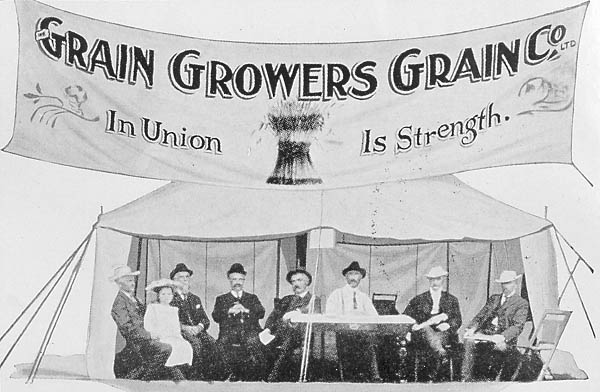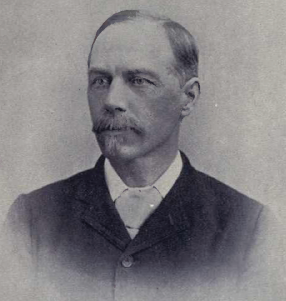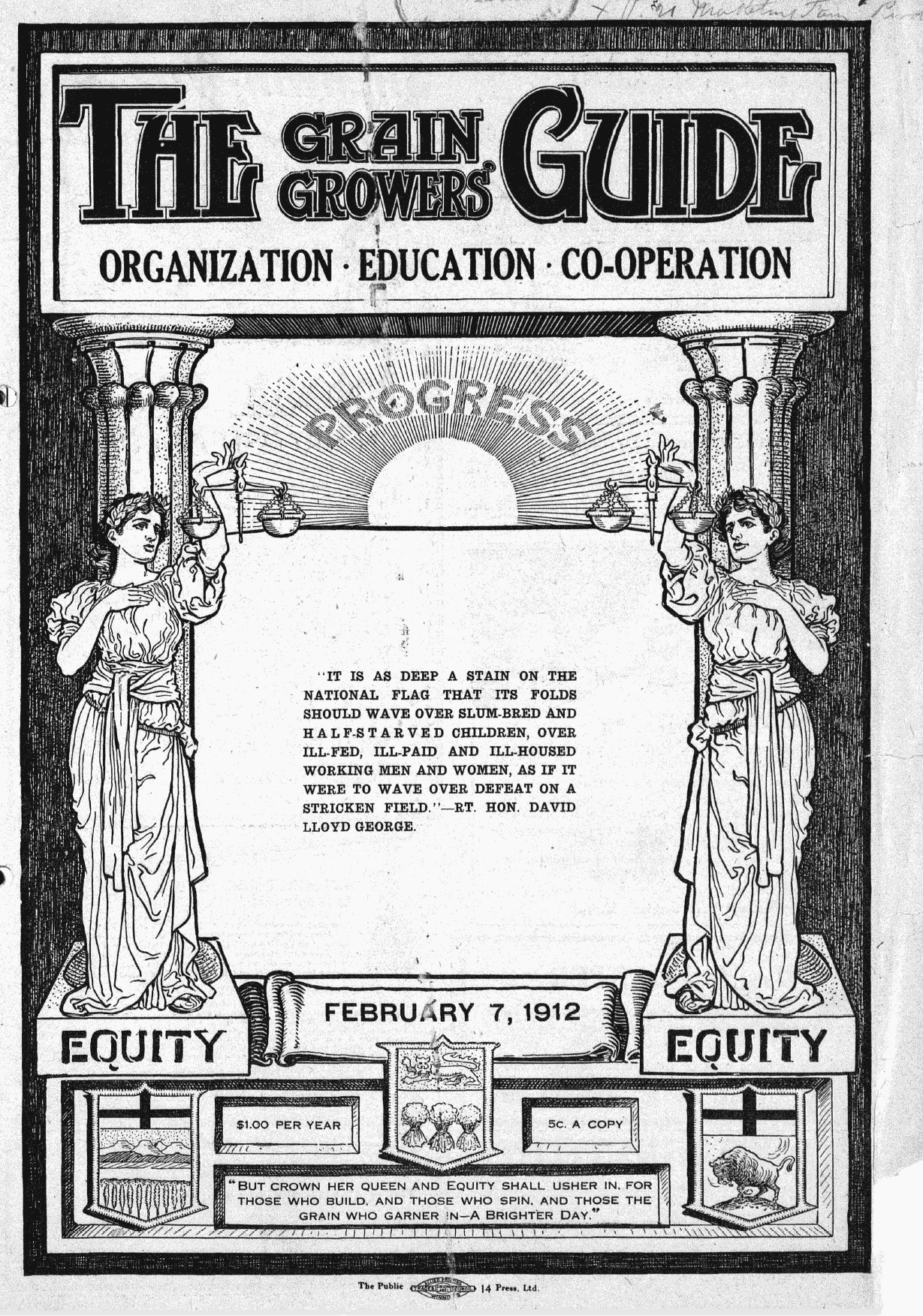|
Edward Alexander Partridge
Edward Alexander Partridge (5 November 1861 – 3 August 1931) was a Canadian teacher, farmer, agrarian radical, businessman and author. He was born in Ontario but moved to Saskatchewan where he taught and then became a farmer. He was active in the Territorial Grain Growers' Association (TGGA), founded in 1902, which addressed various problems with the Western Canada grain market. He founded the cooperative Grain Growers' Grain Company, the predecessor of the United Grain Growers, and the '' Grain Growers' Guide'', a widely distributed weekly paper. His "Partridge Plan" was a broad and visionary proposal for addressing a wide range of farmers' issues, eliminating many abuses caused by the near-monopoly of grain elevator companies, and resulted in important reforms by the provincial governments. Patridge was named a National Historic Person in 2018. [...More Info...] [...Related Items...] OR: [Wikipedia] [Google] [Baidu] |
Vespra Township
Springwater is a township in central Ontario, Canada, in Simcoe County, near Barrie. It is the county seat of Simcoe County. History Prior to European settlement, Ossossane, the largest Wendat settlement and capital of the confederacy was located near modern day Elmvale. Springwater was formed in 1994 through the amalgamation of Flos and Vespra Townships, together with the Village of Elmvale and a portion of the former Medonte Township. Communities Anten Mills is centred on the intersection of Horseshoe Valley Road West (formally County Road 22) and Wilson Drive (formally the 7th Concession of Vespra), northwest of Barrie. The community derived its name from a well-known mill operating in the area in the late 1800s. The first syllables of this firm's name, Anderson & Tennant, after its owners Charles Anderson and a Mr. Tennant, were merged to create the word Anten. Country music star Jason McCoy grew up in Anten Mills. Most of the workforce living in Anten Mills are employ ... [...More Info...] [...Related Items...] OR: [Wikipedia] [Google] [Baidu] |
Winnipeg Grain Exchange
The Winnipeg Grain Exchange (Known too as ''ICE Futures Canada'') was established in 1887, and dissolved in 1986. It was also the predecessor of the Winnipeg Commodity Exchange. List of presidents :''This table represents the list of presidents of the exchange.'' The exchange had 97 presidents, Of which: * The first chairman is Daniel Hunter McMillan Sir Daniel Hunter McMillan, (January 14, 1846 – April 14, 1933) was a Manitoba politician. He was a cabinet minister in Thomas Greenway's government from 1889 to 1900, and served as the seventh Lieutenant Governor of Manitoba from 1900 to ...; * The last chairman is C. Swartz; References Organizations based in Winnipeg {{Canada-org-stub ... [...More Info...] [...Related Items...] OR: [Wikipedia] [Google] [Baidu] |
Progressive Party Of Saskatchewan
The Progressive Party of Saskatchewan was a provincial section of the Progressive Party of Canada and was active from the 1920s to the mid-1930s. The Progressives were an agrarian, social democratic political movement. It was originally dedicated to political and economic reform; it also challenged economic policies that favoured the financial and industrial interests in Central Canada over agrarian (and, to some extent, labour) interests. Like its federal counterpart it favoured free trade over protectionism. The Progressive movement in Saskatchewan Despite the dominance of agriculture in Saskatchewan, the Progressive Party of Saskatchewan was never able to match the success it and the United Farmers movement had in other provinces such as Alberta, where the United Farmers of Alberta took power, Manitoba, where the Progressive Party of Manitoba was able to form government, or even Ontario, where the United Farmers of Ontario took power in 1919. This was largely because whil ... [...More Info...] [...Related Items...] OR: [Wikipedia] [Google] [Baidu] |
William Richard Motherwell
William Richard Motherwell, (January 6, 1860 – May 24, 1943) was a Canadian politician serving at both the Saskatchewan Legislative Assembly and the Canadian Parliament. He served as Agriculture Minister for both levels of government during his career. Biography Born in Perth, Canada West, Motherwell attended the Ontario Agricultural College, graduating in 1881; then worked that summer in Portage la Prairie, Manitoba. The following year he spring he returned to the prairies joining settlers in who traveled by rail to Brandon, Manitoba, then by red river cart and wagon beyond to the area of Abernethy, Saskatchewan, where he settled and constructed the Motherwell Homestead. In 1901, he co-founded and became president of the Territorial Grain Growers' Association. He served in the provincial legislator from 1905 to 1918, Saskatchewan Minister of Agriculture from 1906-1917. His resignation from the provincial legislature was in protest over the provincial Liberal Part ... [...More Info...] [...Related Items...] OR: [Wikipedia] [Google] [Baidu] |
World War I
World War I (28 July 1914 11 November 1918), often abbreviated as WWI, was List of wars and anthropogenic disasters by death toll, one of the deadliest global conflicts in history. Belligerents included much of Europe, the Russian Empire, the United States, and the Ottoman Empire, with fighting occurring throughout Europe, the Middle East, Africa, the Pacific Ocean, Pacific, and parts of Asia. An estimated 9 million soldiers were killed in combat, plus another 23 million wounded, while 5 million civilians died as a result of military action, hunger, and disease. Millions more died in Genocides in history (World War I through World War II), genocides within the Ottoman Empire and in the Spanish flu, 1918 influenza pandemic, which was exacerbated by the movement of combatants during the war. Prior to 1914, the European great powers were divided between the Triple Entente (comprising French Third Republic, France, Russia, and British Empire, Britain) and the Triple A ... [...More Info...] [...Related Items...] OR: [Wikipedia] [Google] [Baidu] |
Wilfrid Laurier
Sir Henri Charles Wilfrid Laurier, ( ; ; November 20, 1841 – February 17, 1919) was a Canadian lawyer, statesman, and politician who served as the seventh prime minister of Canada from 1896 to 1911. The first French Canadian prime minister, his 15-year tenure remains the longest unbroken term of office among Canadian prime ministers and his nearly 45 years of service in the House of Commons is a record for the House. Laurier is best known for his compromises between English and French Canada. Laurier studied law at McGill University and practised as a lawyer before being elected to the Legislative Assembly of Quebec in 1871. He was then elected as a member of Parliament (MP) in the 1874 federal election. As an MP, Laurier gained a large personal following among French Canadians and the Québécois. He also came to be known as a great orator. After serving as minister of inland revenue under Prime Minister Alexander Mackenzie from 1877 to 1878, Laurier became leader ... [...More Info...] [...Related Items...] OR: [Wikipedia] [Google] [Baidu] |
Edward Alexander Partridge (1861-1931)
Edward Alexander Partridge (5 November 1861 – 3 August 1931) was a Canadian teacher, farmer, agrarian radical, businessman and author. He was born in Ontario but moved to Saskatchewan where he taught and then became a farmer. He was active in the Territorial Grain Growers' Association (TGGA), founded in 1902, which addressed various problems with the Western Canada grain market. He founded the cooperative Grain Growers' Grain Company, the predecessor of the United Grain Growers, and the ''Grain Growers' Guide'', a widely distributed weekly paper. His "Partridge Plan" was a broad and visionary proposal for addressing a wide range of farmers' issues, eliminating many abuses caused by the near-monopoly of grain elevator companies, and resulted in important reforms by the provincial governments. Patridge was named a National Historic Person in 2018. [...More Info...] [...Related Items...] OR: [Wikipedia] [Google] [Baidu] |
John Millar (Canadian Politician)
John Millar (19 March 1866 – 15 May 1950) was a Progressive party and Liberal Progressive member of the House of Commons of Canada. He was born in Woodstock, Canada West and became a farmer and teacher. Millar attended high school at Woodstock Collegiate Institute. He received a second-class teachers' certificate and became a schoolteacher in Ontario for three years and in Saskatchewan for five years. From 1901 to 1908, he was the first secretary of the Saskatchewan Grain Growers Association and in 1906 chaired the Royal Grain Commission. Millar served as reeve of Indian Head, Saskatchewan from 1910 to 1913, then as its mayor in 1914. He was first elected to Parliament under the Progressive Party banner in Qu'Appelle riding during the 1921 general election then re-elected in 1925. In the 1926 election, Millar was re-elected under the Liberal-Progressive party label. After this term, he was defeated by Ernest Perley Ernest Edward Perley (23 December 1877 – ... [...More Info...] [...Related Items...] OR: [Wikipedia] [Google] [Baidu] |
Alberta Farmers' Association
The Alberta Farmers' Association (AFA) was a farmer's association that was active in Alberta, Canada from 1905 to 1909. It was formed from the Alberta branch of the Territorial Grain Growers' Association (TGGA) when Alberta became a province in 1905. It provided a voice for farmers in their struggle with grain dealers and the railways. In January 1909 it merged with the Canadian Society of Equity to form the United Farmers of Alberta. Background The Manitoba Grain Act was passed in 1901, designed to prevent abuses by grain dealers and railways and ensure fair practices and prices in the booming grain trade in the prairie provinces of Canada. There was a bumper crop that year, and farmers found they could not get their produce to market because the Canadian Pacific Railway (CPR) and the grain companies were still failing to conform to the act. In response, farmers formed the Territorial Grain Growers' Association (TGGA) in January 1902. The TGGA had succeeded in getting the Manito ... [...More Info...] [...Related Items...] OR: [Wikipedia] [Google] [Baidu] |
Thomas Crerar
Thomas Alexander Crerar, (June 17, 1876 – April 11, 1975) was a western Canadian politician and a leader of the short-lived Progressive Party of Canada. He was born in Molesworth, Ontario, and moved to Manitoba at a young age. Early career Crerar rose to prominence as leader of the Manitoba Grain Growers' Association in the 1910s. Although he had no experience as an elected official, he was appointed as Minister of Agriculture in Robert Laird Borden's Union government on October 12, 1917, to provide a show of national unity during the First World War. He was easily elected to the House of Commons of Canada for Marquette in the election of 1917. On June 6, 1919, Crerar resigned from his position in protest against the high tariff policies of the Conservative-dominated government. He was strongly in favor of free trade with the United States, which would have benefited the western farmers. Progressive Party of Canada In 1920, he was selected as leader of the Progress ... [...More Info...] [...Related Items...] OR: [Wikipedia] [Google] [Baidu] |
United Farmers Of Alberta
The United Farmers of Alberta (UFA) is an association of Alberta farmers that has served different roles in its 100-year history – as a lobby group, a successful political party, and as a farm-supply retail chain. As a political party, it formed the government of Alberta from 1921 to 1935. Since 1935, it has primarily been an agricultural supply cooperative headquartered in Calgary, Alberta. , UFA operates 34 farm and ranch supply stores in Alberta and over 110 fuel stations in British Columbia, Alberta and Saskatchewan. Founding as lobby group UFA was founded in 1909 as a government lobby group following a merger between the Alberta Farmers' Association and Alberta branches of the Canadian Society for Equity. The UFA began as a non-partisan organization whose aim was to be a lobby group promoting the interest of farmers in the province. In 1913, under president William John Tregillus, the UFA successfully pressured Alberta's Liberal government to organize the Alberta Fa ... [...More Info...] [...Related Items...] OR: [Wikipedia] [Google] [Baidu] |
Saskatchewan Grain Growers' Association
The Saskatchewan Grain Growers' Association (SGGA) was a farmer's association that was active in Saskatchewan, Canada in the early 20th century. It was a successor to the Territorial Grain Growers' Association, and was formed in 1906 after Saskatchewan became a province. It provided a voice for farmers in their struggle with grain dealers and the railways, and was influential in obtaining favorable legislation. The association initially resisted calls to create a farmer-owned marketing company. Later it did support formation of the Saskatchewan Co-operative Elevator Company. The SGGA helped the Saskatchewan Wheat Pool, a cooperative marketing organization, to become established in 1924. In 1926 the SGGA merged with the more radical Farmers' Union of Canada, which had earlier split from the SGGA, to create the United Farmers of Canada, Background The Manitoba Grain Act was passed in 1901, designed to prevent abuses by grain dealers and railways and ensure fair practices and prices ... [...More Info...] [...Related Items...] OR: [Wikipedia] [Google] [Baidu] |






